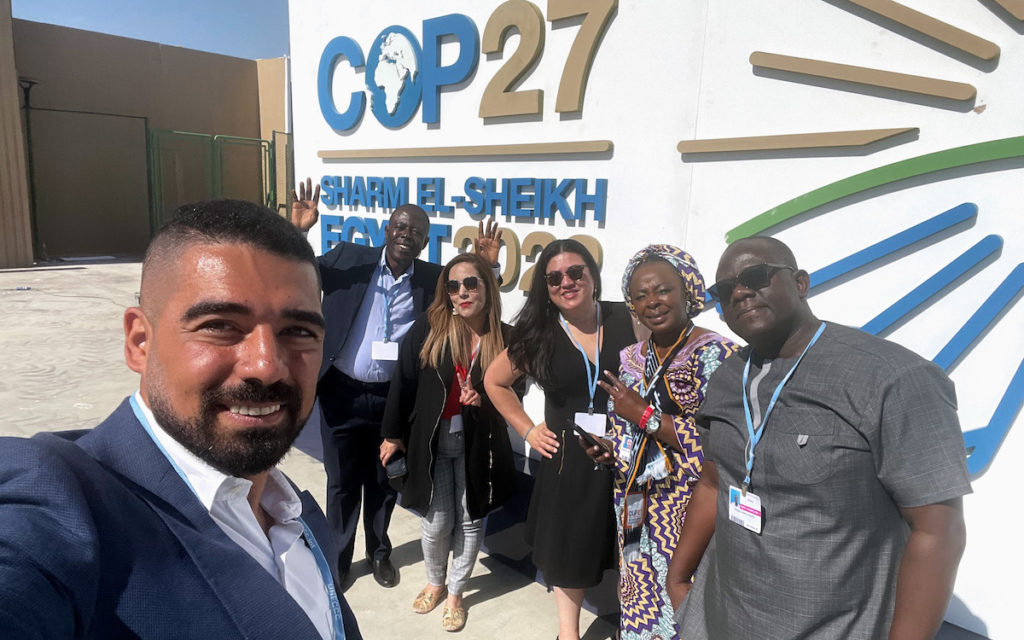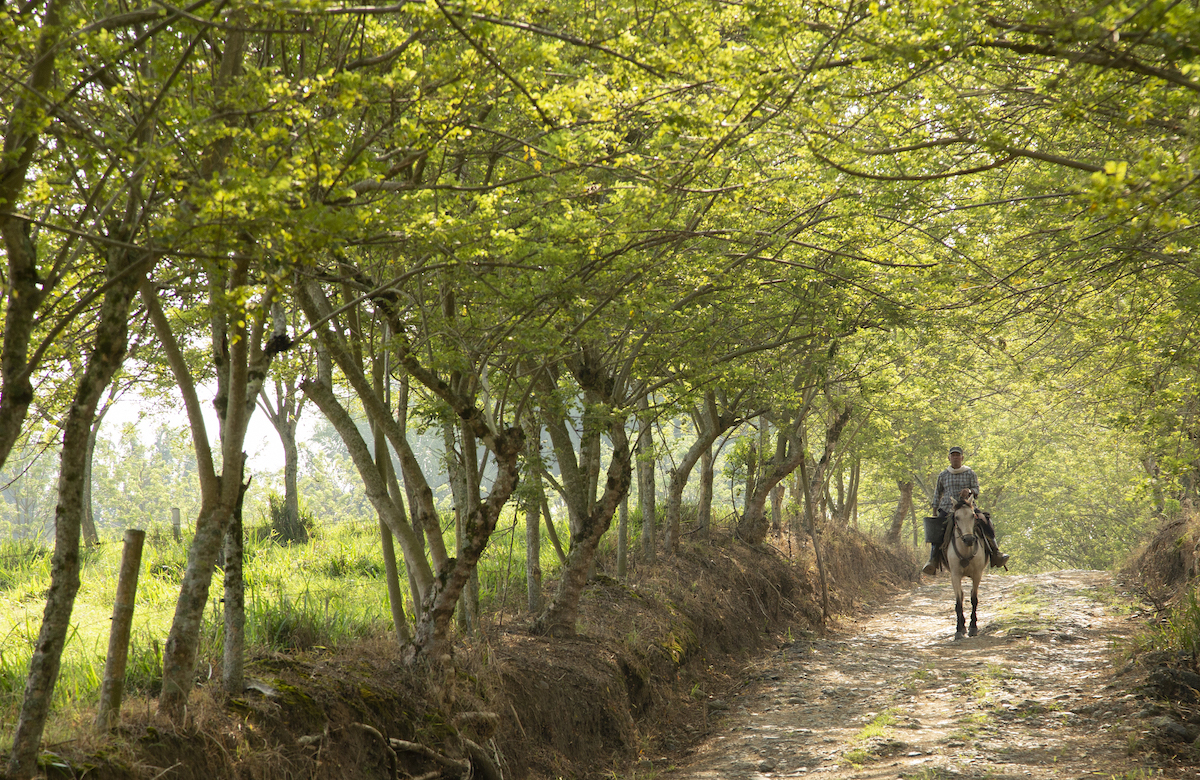COP27 brought together over 35,000 stakeholders, including political leaders, civil society actors and other observers from 190 countries to find agreement on climate-related topics, including climate change adaptation, climate finance, decarbonization, agriculture and biodiversity. Prior to the summit, Solidaridad laid out our suggestions for more effective climate finance that can build farmer resilience ensuring food security and livelihoods in an uncertain future.
Brokering agreements was not easy. The summit, originally scheduled to end on Friday, 18 November, stretched into early Sunday morning. In the end, a hard-fought final agreement was reached that sets up a fund to help countries being battered by climate disasters.
Establishment of a loss and damage fund
The historic breakthrough of COP27 was the establishment of a Loss and Damage Fund to help vulnerable countries cope with the destructive impacts of climate change. The development marks an important achievement for civil society and collective action in developing countries that has been nearly three decades in the making.
Though developing countries contribute little in the way of emissions, they often suffer the most extreme consequences of a changing climate. For example, families in Central America still struggle with the impacts of Hurricanes Iota and Eta, which struck in 2020.
At COP27, wealthy countries agreed to the development of the fund that will focus on support for loss and damages, while avoiding liability or compensation provisions.
This agreement does not attack the root causes of climate change, but it will hopefully be a lifeline for poor families who have seen their livelihoods destroyed by extreme climate events.
Eduard Merger, Climate Innovation Lead at Solidaridad Network
“While this won’t be enough to address the scope and scale of the problem, this agreement provides for a commitment and tacit acknowledgement of the urgency of the problem,” said Eduard Merger, Climate Innovation Lead at Solidaridad Network. “This agreement does not attack the root causes of climate change, but it will hopefully be a lifeline for poor families who have seen their livelihoods destroyed by extreme climate events.”
The next year will be a process of determining the size of contributions and how funds will be allocated. Signatories have made a commitment to set up a financial support structure by the next COP in 2023.
Emissions reduction, a glaring omission
Compensating countries for loss and damages is a strong step forward, but the root causes of climate change must be addressed. COP27 maintained the global commitment to limiting global warming to 1.5C from pre-industrial levels. Beyond that, the risk of extreme drought, wildfires, floods and food shortages will increase dramatically.
This can be seen in Nicaragua where smallholder farmers are seeing more extreme weather events and they have the data to back it up. A programme from Solidaridad has been providing farmers with access to tools to measure climate conditions and create plans to adapt.
The failure of COP27 to further efforts on cutting emissions will make it much more difficult to limit the impacts of climate change. One notable development was the inclusion of language on renewable energy, including “efforts towards the phasedown of unabated coal power and phase-out of inefficient fossil fuel subsidies.”
It’s strong language, but also opened the door to the growing use of natural gas, a fossil fuel that leads to both carbon dioxide and methane emissions. The addition of ‘low emissions’ energy alongside renewables may be used to justify new fossil fuel development.
There is always the need for give and take in negotiations, but the urgency of the climate crisis mandates that we take bold action.
Eduard Merger, Climate Innovation Lead at Solidaridad Network
“There is always the need for give and take in negotiations, but the urgency of the climate crisis mandates that we take bold action,” Merger said. “This means a commitment to eliminating all fossil fuel emissions, not a gradual drawdown that perpetuates the path we are on.”
Seeking reform for international financial institutions
The establishment of a Loss and Damage Fund was necessary, but amounted to a mitigation effort that will do little to change the planet’s current trajectory. COP27 made it more evident than ever that the way that the World Bank and other publicly funded finance institutions operate must be reformed. Our positioning from the beginning of the COP27 remains a key agenda item for the future COPs to reform climate finance so that it works for small-scale farmers.
A Guardian article estimates that the developing world will need USD$2.4 trillion a year from 2030. Reconsidering how this finance is deployed will determine if we’re able to maintain progress on reduced emissions and successful adaptation strategies.
Solidaridad Network at COP 27
Seven team members of the Solidaridad Network from Central and South America, West and East Africa, and our Egypt office attended COP27 and made strong advances in our climate work with partners around the world.

“For Solidaridad, strategic alliances with key actors allow us to scale up efforts with smallholders while also strengthening capacity at the sectoral and government levels. This collaboration is critical,” said Sofía Núñez, Country Manager Solidaridad Honduras.
A strategic meeting between the Honduran government, Solidaridad and Rabobank resulted in agreement on an agroforestry pilot project with smallholder coffee farmers that will increase their resilience to climate change. Beyond the borders of Honduras, team members met with representatives from El Salvador to discuss cooperation strategies in the Trifinio area, which includes El Salvador, Guatemala and Honduras.
Team members from West Africa highlighted the need for gender inclusiveness in adaptation pathways. The Reclaim Sustainability! Programme supports the sustainable and inclusive development of the oil palm sector in Côte d’Ivoire, along with many other projects.
The East Africa team participated in various panels highlighting our work in East, Central and Southern Africa. They raised the need for increasing climate finance flows to smallholder supply chains and enabling conversations on climate change through collaborative learnings.
“Even for all of our efforts, the amount of climate finance available falls far short of the need. Our adaptation actions are unable to keep pace with the climate impacts. We need a step change in finance now,” said Sweeny Binsari of Solidaridad’s East Africa office. Solidaridad highlighted the need for an increase in climate finance to support locally-led efforts to build resilience in our pre-COP call to action.
Toward a more sustainable climate
Although the results of COP27 were not all as expected, there were important advances. These advances are the result of consistent and strong pressure from civil society, scientists, advocates, smallholder farming communities, indigenous peoples, and other stakeholders who worked tirelessly to hold global leaders to commitments set at every COP.
The equal voice of underrepresented peoples is critical in any negotiation and will have a direct impact on how the world responds to climate change. In every negotiation, we must work to ensure inclusive representation in decision-making.
Jeroen Douglas, Executive Director of Solidaridad Network
“The equal voice of underrepresented peoples is critical in any negotiation and will have a direct impact on how the world responds to climate change. In every negotiation, we must work to ensure inclusive representation in decision-making,” said Jeroen Douglas, Executive Director of Solidaridad Network. “Above all: let us redouble our efforts to limit global warming to a maximum of 1.5 degrees. It’s a rallying call and the only dot on the horizon we have.”
There is an urgent need to mobilize support together with international financial institutions and the private sector. Leveraging financial and technical support from large emerging economies will contribute to sustainable supply chains in low and middle income countries. This has the added benefit of strengthening the global economy.
Solidaridad continues working alongside smallholders to ensure their voices are heard and action is taken. The Dream Fund, a project supported by Postcode Lottery Group and developed by Solidaridad in partnership with Rabobank, was recognized at the latest Clinton Global Initiative Meeting. The project will reach more than 100,000 smallholders and support them in adopting climate-smart agroforestry practices.

